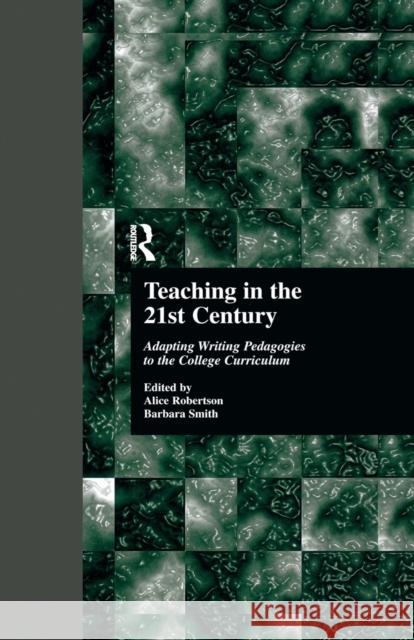Teaching in the 21st Century: Adapting Writing Pedagogies to the College Curriculum » książka
topmenu
Teaching in the 21st Century: Adapting Writing Pedagogies to the College Curriculum
ISBN-13: 9781138983694 / Angielski / Miękka / 2016 / 384 str.
Teaching in the 21st Century: Adapting Writing Pedagogies to the College Curriculum
ISBN-13: 9781138983694 / Angielski / Miękka / 2016 / 384 str.
cena 253,60
(netto: 241,52 VAT: 5%)
Najniższa cena z 30 dni: 236,70
(netto: 241,52 VAT: 5%)
Najniższa cena z 30 dni: 236,70
Termin realizacji zamówienia:
ok. 16-18 dni roboczych.
ok. 16-18 dni roboczych.
Darmowa dostawa!
First Published in 2000. Routledge is an imprint of Taylor & Francis, an informa company.











